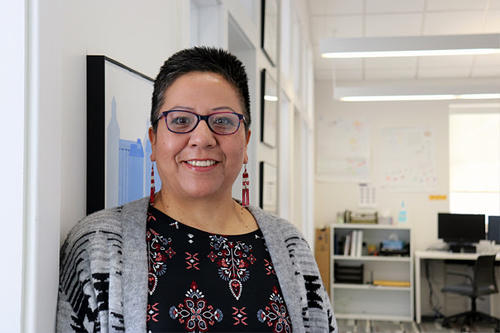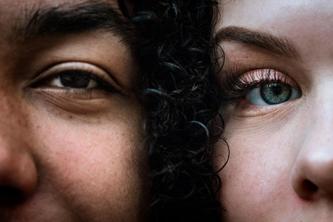
U of M Morris student Denise Riffey is helping Assistant Professor Kerry Michael analyze and collect data for Minnesota’s Eighth Judicial District treatment court (sometimes called drug court), consisting of 13 counties in western Minnesota.
Michael is a lead investigator on a grant from the US Department of Justice to evaluate the program.
Treatment courts have proven to be a cost-effective tool for reducing recidivism and improving outcomes for the thousands of Minnesotans who enter the court system every year struggling with addiction. The courts target nonviolent criminal offenders who suffer from addiction, with treatment strategies including regular appearances before a judge.
Riffey got involved with the project through Michael's Drugs and Human Behavior course, where students work on a prevention or harm-reduction project, applying what they learn in class to create a program that serves the community.
“We have some amazing students here—really interested, truly dedicated, and who want to do something in the world,” says Michael.
For Riffey, the work is personal.
After having addiction problems in her life, she enrolled at Morris and is working towards a degree in human services.
A Native American woman, Riffey was raised on a reservation by her grandparents, since her parents were unable to raise her because of their alcohol addictions. After becoming a mother, Riffey entered an (alcohol) addiction treatment program. It changed her life.
“That inspired me to the point where I wanted to give back. These people are struggling with the same things I went through, and I believe I can make a difference.”
Michael hopes that UMN Morris and its students can play an even bigger role in battling addiction and supporting resilience in the community. She recently proposed adding a public health major and addiction-focused curriculum, with the aim of preparing students for certification as addiction counselors.
Many Morris students come from communities that face addiction challenges, says Michael, and they often return to them. So why not better equip them to tackle these challenges?
-------
This story is part of a larger piece about addiction work at the University of Minnesota Morris.
- Categories:
- Health




